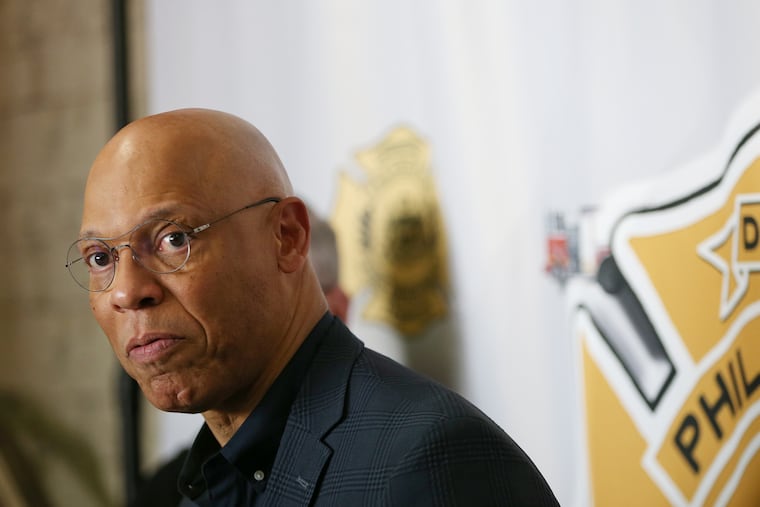Classes in shifts? Philly schools planning for a fall of ‘challenging circumstances’ due to coronavirus.
“We are trying to think through every single contingency,” the superintendent said. “The technology gives us some ability to think differently about where children need to be every single day at a given time."

Even as they gear up for the start of the first day of new instruction since mid-March, Philadelphia School District officials have an eye on what next school year will look like, Superintendent William R. Hite Jr. said Thursday.
Because of COVID-19, children may be brought to school in shifts, and could be required to wear masks, he said. Buses could need to make two or three runs and rules for social distancing on SEPTA, which thousands of students rely on to get to Philadelphia schools, will need to be considered. Lunches and recesses will also likely look different.
“All of that is going to be informed by where we are in terms of the requirements based on social distancing,” Hite said during a call with reporters. “Do we stay in the current state in terms of delivering digital content, or do we try to come back and work through what will be some very challenging circumstances?”
» READ MORE: Masks, staggered schedules, social distancing: When Pa. students return to school, things will look different
District officials have joined with a city working group to consider what school might look like when Gov. Tom Wolf allows Pennsylvania to reopen, Hite said.
“We are trying to think through every single contingency,” the superintendent said. “The technology gives us some ability to think differently about where children need to be every single day at a given time. Now, all will have access to the information and to the content.”
Teachers and students who are immuno-compromised might not be able to work face-to-face when school begins, Hite said.
The school system is in its second week of formal, teacher-led review and enrichment lessons; on Monday, teachers will begin covering new material.
The point, Hite said, is to “hopefully stop the further regression from students.”
The system of grading has not yet been determined, Hite said, but the point is not to be punitive for things that students cannot control, like whether they have access to the internet, are working or caring for family members.
» READ MORE: When children return to school, they will most likely need to wear masks, Philly superintendent says
To date, the district has distributed 81,000 Chromebooks, the superintendent said, though some students have not yet picked them up. At some schools, 100% of children have received the laptops, and at others the number is as low as 3%.
District-wide, an average of 71% of students have picked up Chromebooks, Hite said.
Some students still have no way to access the district’s teachers and courses because they have no way to get online. The district is buying mobile hot spots for as many students as it can, but Hite has said the school system won’t be able to purchase what is needed.
“Those mobile hot spots cost as much as the machines do,” Hite said. “We are going to purchase those and distribute those to the most needy families.”
» HELP US REPORT: Are you a health care worker, medical provider, government worker, patient, frontline worker or other expert? We want to hear from you.
Information about the number of families who lack internet access is being collected now, the superintendent said, adding that attendance figures should be available next week as the district shifts to mandatory new instruction.
And while the district has several months to plan what could happen in the fall, a more immediate concern is summer school, including programs for students with special-education plans who are required to have extended school year instruction and those who need to make up credits to graduate.
Virtual summer school “is more of a likely option given where we are and given all the instructions that we’re getting from the health department at this time,” Hite said.